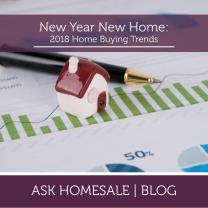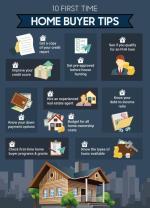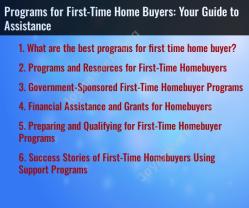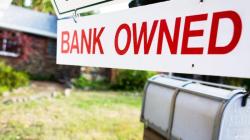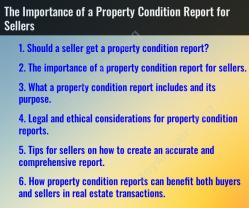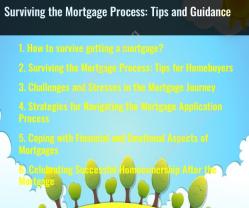How to find repossessed houses for sale?
Finding repossessed houses for sale can be a unique opportunity to purchase a property at a potentially lower price. Here are some tips and resources to help you find repossessed houses for sale:
Real Estate Websites:
- Many real estate websites list foreclosed or repossessed properties. Websites like Zillow, Trulia, Redfin, and Realtor.com often have dedicated sections for foreclosures.
Bank Websites:
- Check the websites of major banks and financial institutions. Banks that have repossessed properties often list them for sale on their websites. Some examples include Wells Fargo, Bank of America, and Chase.
Government Agencies:
- Government agencies like the Department of Housing and Urban Development (HUD), the Federal Housing Administration (FHA), and Fannie Mae offer listings of repossessed homes on their websites. These properties are often sold at competitive prices.
Local Real Estate Agents:
- Contact local real estate agents who specialize in foreclosures or distressed properties. They may have access to listings that are not widely advertised.
Auction Websites:
- Websites like Auction.com, Hubzu, and RealtyTrac specialize in auctioning repossessed properties. You can browse listings, attend online auctions, and place bids.
Public Auctions:
- Some repossessed homes are sold at public auctions. These auctions are typically announced in local newspapers or on the websites of county sheriff's offices. Be prepared to bid against other buyers at these auctions.
Real Estate-Owned (REO) Lists:
- REO properties are homes that have been taken back by banks after foreclosure. Some banks provide lists of their REO properties, and you can inquire with local banks to see if they have any available.
Local Foreclosure Listings:
- Check with your local county or city government for foreclosure listings. They may maintain databases of properties going through foreclosure.
Real Estate Investment Groups:
- Join local real estate investment groups or networks. Members of these groups often share information about repossessed properties they come across.
Networking:
- Talk to real estate professionals, such as appraisers, inspectors, and contractors, who may have insights into repossessed properties in your area.
Real Estate Auction Companies:
- Some real estate auction companies specialize in selling foreclosed homes. Look for such companies in your area or region.
Property Preservation Companies:
- Property preservation companies are responsible for maintaining and preparing repossessed homes for sale. They may have information on properties about to go on the market.
When considering repossessed houses, it's essential to do your due diligence. Thoroughly research the property's condition, the local market, and any outstanding liens or encumbrances. Consider working with a real estate agent or attorney experienced in foreclosures to help navigate the process and ensure a smooth transaction. Additionally, be prepared for potential competition from other buyers, especially in desirable markets.
Repossessed Houses for Sale: How to Find and Purchase
Repossessed houses are homes that have been taken back by the lender after the homeowner defaulted on their mortgage loan. These homes can often be purchased at a discount, but there are some things to keep in mind before you buy.
Here are some tips on how to find and purchase repossessed houses:
- Search online listings. Many banks and other lenders list their repossessed properties online. You can also find listings on websites like Zillow and Trulia.
- Contact banks and lenders directly. You can also contact banks and lenders directly to see if they have any repossessed properties for sale.
- Work with a real estate agent. Real estate agents can help you find repossessed properties and negotiate a good price.
Once you have found a repossessed house that you are interested in, there are a few steps you need to take to purchase it:
- Get pre-approved for a mortgage. This will give you an idea of how much money you can borrow and what your monthly payments will be.
- Make an offer. Once you have been pre-approved for a mortgage, you can make an offer on the property. The lender will review your offer and decide whether to accept it.
- Inspect the property. It is important to have the property inspected before you buy it. This will help you identify any potential problems with the property.
- Close on the property. Once the inspection is complete and you are satisfied with the property, you can close on the sale.
Buying Repossessed Homes: Where to Look and What to Know
There are a few places where you can look to buy repossessed homes:
- Bank websites. Many banks list their repossessed properties on their websites.
- Government websites. The government also lists repossessed properties on its websites, such as the Federal Housing Administration (FHA) and the Department of Housing and Urban Development (HUD).
- Real estate agents. Real estate agents can also help you find repossessed homes.
Here are some things to keep in mind when buying a repossessed home:
- Repossessed homes are often sold "as is." This means that the seller will not make any repairs to the property.
- Repossessed homes may be vacant. This means that you may need to make repairs to the property before you can move in.
- Repossessed homes may have liens on them. A lien is a claim against a property. You will need to pay off any liens before you can take ownership of the property.
House Repossession Listings: Navigating the Market
When navigating the market for repossessed houses, it is important to be aware of the following:
- Repossessed homes can sell quickly. If you are interested in a repossessed home, it is important to act quickly.
- Repossessed homes may be underpriced. However, it is important to remember that repossessed homes are often sold "as is," so you may need to budget for repairs.
- Repossessed homes may have multiple offers. If you are interested in a repossessed home, it is important to be prepared to make a competitive offer.
Buying a repossessed home can be a great way to get a good deal on a property. However, it is important to be aware of the risks involved before you buy.








